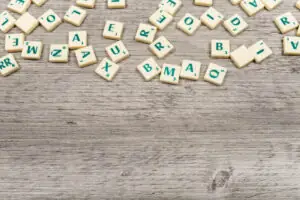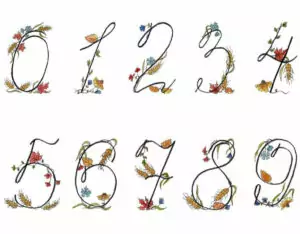Learning the names of animals in a new language can be a fascinating and enjoyable way to enhance your vocabulary. It provides not only a peek into the cultural nuances of how animals are perceived and talked about in different societies but also serves as a practical tool for everyday conversation. If you’re embarking on the journey of learning German, acquiring the names of animals is a great step. Let’s delve into this topic with simplicity and clarity.

✅ AI Essay Writer ✅ AI Detector ✅ Plagchecker ✅ Paraphraser
✅ Summarizer ✅ Citation Generator
Germany is known for its lush forests, diverse wildlife, and a deep appreciation for nature. If you’re planning to visit Germany or just aiming to polish your German language skills, familiarizing yourself with animal names is surprisingly useful. Whether you’re chatting about pets at home, discussing farm animals, or exploring Germany’s vast wilderness, knowing how to refer to the animals around you can enrich your experiences. Plus, understanding animal-related idioms can give you an edge in sounding like a native speaker.
Pets
In Germany, pets are more than just animals – they are considered a part of the family. Below is a table with common pet names in German, which will be useful if you’re visiting a German household or simply want to expand your vocabulary.
| English | German |
|---|---|
| Cat | Katze |
| Dog | Hund |
| Hamster | Hamster |
| Rabbit | Kaninchen |
| Mouse | Maus |
| Rat | Ratte |
| Guinea pig | Meerschweinchen |
| Goldfish | Goldfisch |
| Parrot | Papagei |
| Turtle | Schildkröte |
| Lizard | Eidechse |
| Ferret | Frettchen |
Farm Animals
The rural landscapes of Germany are dotted with farms, making it essential to know the names of farm animals. Here is an extended list of farm animals in German.
| English | German |
|---|---|
| Cow | Kuh |
| Pig | Schwein |
| Sheep | Schaf |
| Goat | Ziege |
| Horse | Pferd |
| Chicken | Huhn |
| Hen | Henne |
| Rooster | Hahn |
| Goose | Gans |
| Duck | Ente |
| Turkey | Truthahn |
| Donkey | Esel |
| Ox | Ochse |
| Bull | Bulle |
In the Wild Animals
Germany’s forests are home to an array of wildlife. Here are some of the animals you might encounter, with their German names included.
| English | German |
|---|---|
| Bear | Bär |
| Wolf | Wolf |
| Deer | Hirsch |
| Hare | Hase |
| Fox | Fuchs |
| Hedgehog | Igel |
| Squirrel | Eichhörnchen |
| Boar | Eber |
| Groundhog | Murmeltier |
| Lion | Löwe |
| Tiger | Tiger |
| Jaguar | Jaguar |
| Panther | Panther |
| Elephant | Elefant |
| Giraffe | Giraffe |
| Monkey | Affe |
| Gorilla | Gorilla |
| Kangaroo | Känguru |
| Koala | Koala |
| Panda | Panda |
| Sloth | Faultier |
| Seal | Robbe |
| Penguin | Pinguin |
| Polar bear | Eisbär |
| Walrus | Walross |
Marine Animals
Though much of Germany is landlocked, its northern seas are bustling with marine life. Here are some aquatic creatures you might hear about or see.
| English | German |
|---|---|
| Fish | Fisch |
| Shark | Hai |
| Dolphin | Delfin |
| Whale | Wal |
| Sea lion | Seelöwe |
| Jellyfish | Qualle |
| Octopus | Tintenfisch |
| Seahorse | Seepferdchen |
| Urchin | Seeigel |
| Starfish | Seestern |
| Mussel | Muschel |
| Sea cucumber | Seegurke |
Bugs and Insects
Whether you’re in the city or the countryside, you’ll encounter various insects. Knowing their names in German can be surprisingly useful.
| English | German |
|---|---|
| Bee | Biene |
| Wasp | Wespe |
| Mosquito | Moskito |
| Fly | Fliege |
| Spider | Spinne |
| Grasshopper | Heuschrecke |
| Cockroach | Kakerlake |
| Butterfly | Schmetterling |
| Ant | Ameise |
| Moth | Motte |
| Snail | Schnecke |
| Slug | Nacktschnecke |
Birds
The skies and woods of Germany are filled with a diverse range of birds. Below is a list of common bird names in both English and German.
| English | German |
|---|---|
| Seagull | Möwe |
| Eagle | Adler |
| Sparrow | Spatz |
| Pigeon | Taube |
| Owl | Eule |
| Swallow | Schwalbe |
| Raven | Rabe |
| Peacock | Pfau |
| Duck | Ente |
| Swan | Schwan |
| Falcon | Falke |
| Parakeet | Wellensittich |
Animal Idioms
German is rich with idioms that feature animals, reflecting the importance of nature in the language. Here are a few expressions that can make your German sound more colorful and authentic.
| English Idiom | German Idiom | Literal Translation |
|---|---|---|
| To kill two birds with one stone | Zwei Fliegen mit einer Klappe schlagen | To slap two flies with one swatter |
| To have a frog in one’s throat | Einen Frosch im Hals haben | To have a frog in the throat |
| When pigs fly | Wenn Schweine fliegen | When pigs fly |
| To be a lone wolf | Ein Einzelgänger sein | To be a single-goer |
| Like a fish out of water | Wie ein Fisch auf dem Trockenen | Like a fish on the dry |
| To let the cat out of the bag | Die Katze aus dem Sack lassen | To let the cat out of the bag |
Incorporating these animal names and idioms into your German studies can make learning the language more engaging and fun. As you expand your vocabulary, you also gain a deeper appreciation for German culture and its connection to the natural world.
FAQ
Follow us on Reddit for more insights and updates.





Comments (0)
Welcome to A*Help comments!
We’re all about debate and discussion at A*Help.
We value the diverse opinions of users, so you may find points of view that you don’t agree with. And that’s cool. However, there are certain things we’re not OK with: attempts to manipulate our data in any way, for example, or the posting of discriminative, offensive, hateful, or disparaging material.